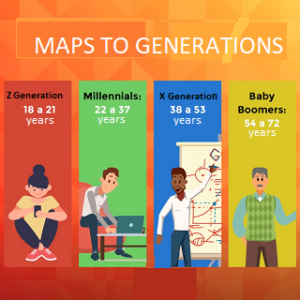
Digital transformation beyond Buzzword
We alerted and problematized in the 10 years of this blog the transformation that was being led by digital changes, social, educational, industrial and even behavioral aspects, most of the skeptics reacted, mocked or despised a real change that was happening.
transformation that was being led by digital changes, social, educational, industrial and even behavioral aspects, most of the skeptics reacted, mocked or despised a real change that was happening.
The pandemic has shown that more than necessary tools can build bridges, establish new relationships, energize companies and avoid wasting time, money and especially in these times, endangering health.
Now everyone lives in the digital reality, companies have survived through online services, families, social groups, public services and meetings of various types depend on digital tools, shows depend on lives, meetings or posts on social media tools.
A buzzword emerged very strongly called the “digital transformation”, but the danger of opportunism is great for companies and sites that exploit and mystify these services and charge dearly for it, so some concepts are necessary, first what happens differently in generation Z of previous call of millennials, those who were born at the beginning of the millennium, therefore before the year 2000, which is now 22 to 37 years old.
The millenials followed the evolution of the Web (the pages, websites and blogs), they were born in a reality in which computers were an appliance, so they were only used at home and optionally at school, while generation Z through cell phones took the digital world to everywhere, create chat groups and behave differently with the credibility of websites, blogs and media networks, create their own relationships and idols, in general different from everything that is known.
Although more closed and with a tendency to have little social relationship, they are more critical than millennials, who are more anxious, more efficient and more demanding.
Thus, relations with the market are very different, they return to prefer shopping in physical stores and select well what they buy, less impulsive and already have the technology with excellent support, although very connected they already know the limits of technology.
Major economics magazines like Forbes and Fortune have done generation Z analyzes to understand the necessary market transformation, Forbes says it represents 25% of the current world population, digital is a natural part of their lives, like TV and the radio of past generations, while Fortune claims that 32 of generation Z are striving for a job of their dreams and rule out taking on any job, although temporarily accepted to lift the future.
Thus the old CRMs (Customer Relationship Management) do not work and many criticisms and analyzes made for the millennial generation are outdated.
According to Kasey Panetta, a researcher at Gartner, 5 new concepts are emerging: Composite architectures, agile and responsive architectures, Algorithmic trust, products, links, websites and reliable transactions, Beyond silicon, the limits of Moore’s law of the evolution of computers, now technologies smaller and more agile are sought, Formative Artificial Intelligence (AI) adaptation to the client, customization of services, times and location, and the Digital Me concept, a kind of passport to the digital world, tools and websites that already know the client and their needs, forms of behavior and preferences.
So the entire digital universe that seemed stable is also going to collapse and much of what is called “digital transformation” is just a digital mystification.
Panetta, Kasey. 5 Trends Drive the Gartner Hyper Cycle for Emerging Technologies, 2020. Available at: https://www.gartner.com/smarterwithgartner/5-trends-drive-the-gartner-hype-cycle-for-emerging-technologies-2020, Access: September 15, 2020









